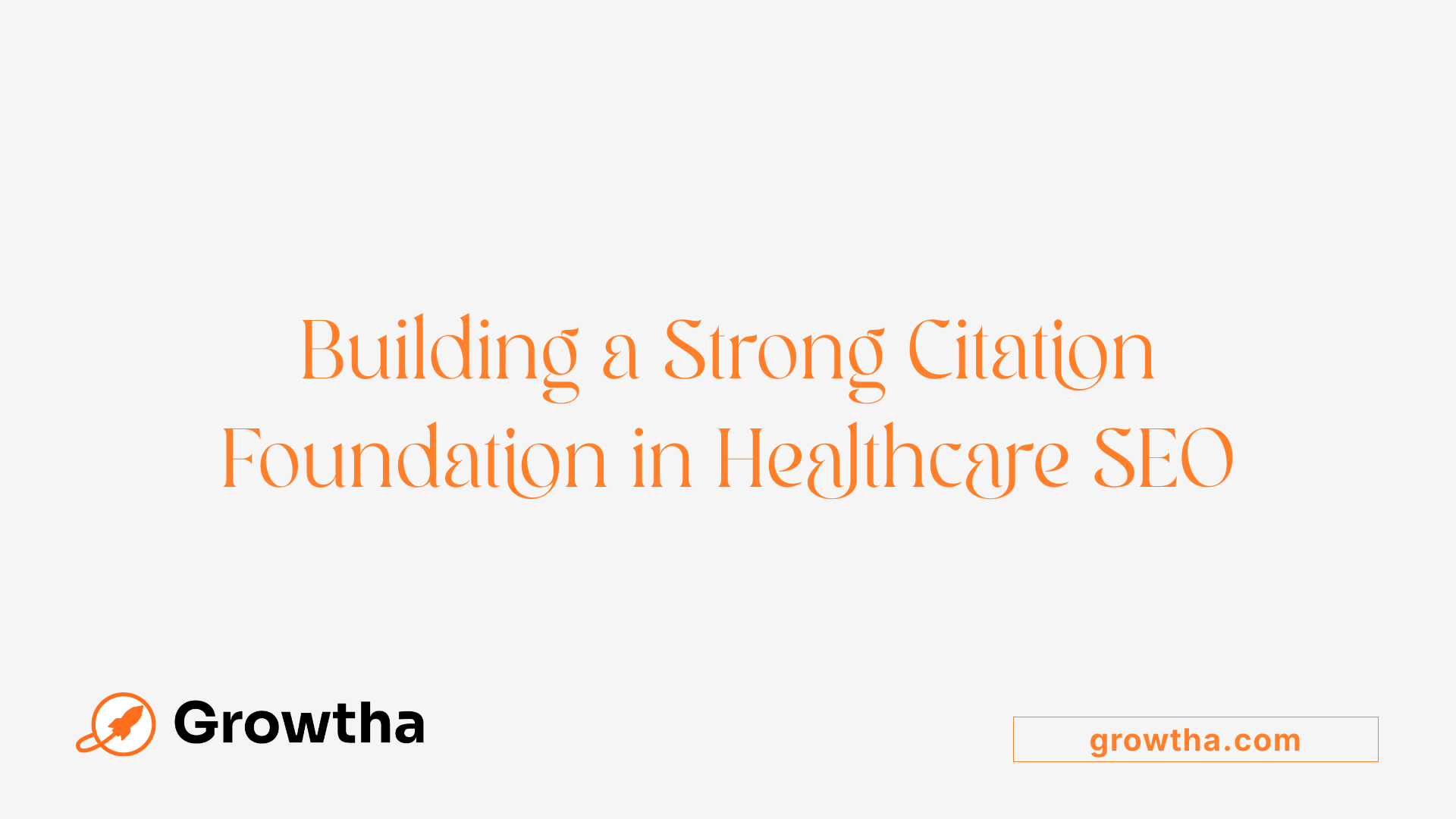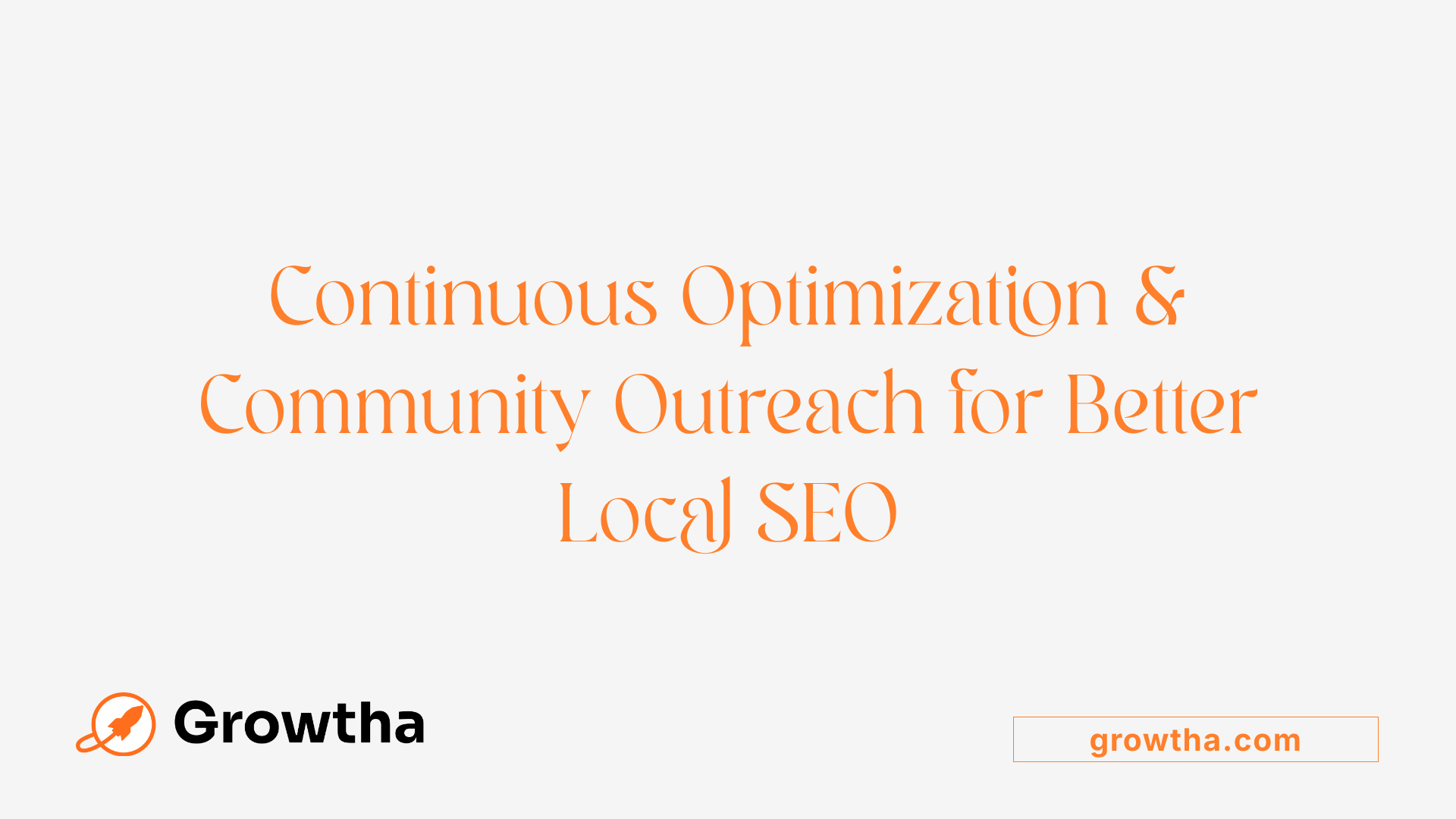In today’s digital landscape, local SEO is essential for healthcare providers aiming to attract nearby patients. Central to this strategy are local citations — online mentions of a practice’s Name, Address, and Phone number (NAP). This article explores how effective management of local citations can enhance search rankings, elevate online reputation, and integrate into broader healthcare SEO efforts.

Local citations refer to any online mention of a healthcare practice’s Name, Address, and Phone number — collectively known as NAP. These mentions can appear in various places on the internet, such as directories, social media profiles, review sites, and the practice’s official website.
A typical citation contains the practice’s fundamental details, often including additional information like the practice’s website URL, hours of operation, and specialties. Accurate and consistent NAP information across all platforms forms the backbone of a healthy local SEO strategy.
Citations surface across multiple online platforms:
Presence in these sources validates the practice’s legitimacy and helps to build its online footprint.
Maintaining uniform NAP details everywhere is critical. Discrepancies can confuse search engines and patients, potentially reducing search rankings and trustworthiness.
Search algorithms rely on consistency to verify that a practice is properly established in its community. If inconsistencies exist, search engines might view the information as unreliable, lowering the practice’s visibility in local search results.
Furthermore, consistent citations improve the chances that potential patients will find accurate contact information, leading to better engagement and higher appointment conversion rates.
Platform Type Example Importance of NAP Consistency Additional Notes Healthcare directories Vitals, Healthgrades Critical for authority signals and rankings Local citations here highly influential Social media Facebook, LinkedIn Builds online presence Always ensure info updates are synchronized Google My Business Google Maps Key for local Map Pack visibility Complete and accurate GBP info boosts rankings Practice website Practice homepage & location pages Supports local SEO Use schema markup to reinforce NAP details
Effective management of local citations is vital for boosting local SEO performance. Regular audits are recommended to remove duplicates, update outdated details, and ensure consistency.
In the competitive landscape of healthcare, reliable local citations combined with a strong online profile in relevant directories can significantly enhance visibility, trust, and patient acquisition efforts.

Local citations are a cornerstone of a comprehensive healthcare SEO approach. They serve as online proof points that confirm a practice’s legitimacy and operational status across various digital platforms. This includes listings on business directories, healthcare-specific sites, and social media profiles. When these citations are accurate and consistent, search engines recognize the practice as a trustworthy and established entity, improving its chances of ranking higher in local search results.
These citations complement other SEO efforts, especially the optimization of Google My Business (GMB) profiles. Claiming and verifying a GMB listing allows practices to control their online presence, display key information, and enhance visibility in Google’s Map Pack and Local 3-Pack results. When combined with well-maintained citations, this significantly boosts local search prominence.
Supporting local content creation and keyword targeting further strengthens this strategy. Creating location-specific pages and high-quality content tailored to local healthcare needs improves relevance and helps practices rank for relevant, high-intent searches. Incorporating local keywords into website content, blog posts, and service descriptions ensures alignment with what potential patients are searching for.
Backlinks from reputable healthcare organizations and local businesses also play a crucial role. High-quality inbound links enhance site authority and signal relevance to search engines, boosting local rankings. Diversifying these backlinks alongside citations helps solidify a practice’s online authority and fosters trust among patients.
In essence, integrating citations into broader healthcare SEO strategies involves nurturing a consistent and authoritative online profile. When combined with optimized Google Business Profiles, localized content, and trusted backlinks, local citations help practices achieve better visibility, attract nearby patients, and stand out in a competitive local search landscape.

Local citations play a crucial role in enhancing a healthcare practice's visibility and credibility online. By ensuring that the practice's Name, Address, and Phone number (NAP) are consistent and accurate across multiple online platforms—such as healthcare-specific directories, social media profiles, and review sites—search engines can verify that the practice is legitimate and active.
This consistency helps improve local search rankings, especially in prominent results like Google’s Map Pack or Local 3-Pack. When a practice maintains a broad and authoritative citation profile, search engines view it as a trusted and established entity. Consequently, the practice appears more prominently when local patients search for relevant healthcare services.
Moreover, the combination of citations with positive patient reviews boosts the practice’s online reputation. Reviews increase the volume of recent, high-quality feedback, which search engines consider when ranking local businesses. Practices actively encouraging and responding to reviews foster trust and engagement, making prospective patients more likely to choose them.
Moreover, managing citations effectively involves claiming and maintaining accurate listings on healthcare directories such as Healthgrades, Vitals, and WebMD. Diversifying citations across reputable sources enhances local relevance and authority. Regular audits to remove duplicates and update information ensure that potential patients find consistent, trustworthy data, simplifying their decision-making process.
Overall, a comprehensive approach to local citations—coupled with review management and profile optimization—builds online authority, improves local search visibility, and nurtures a strong reputation. This integrated strategy not only attracts more local traffic but also fosters patient trust, ultimately supporting the growth and credibility of healthcare practices.
A crucial step in local SEO for healthcare practices is claiming and verifying the Google Business Profile (GBP). This process involves asserting ownership of the practice’s listing on Google, filling in accurate details such as address, hours, contact information, and services offered. Verification typically requires a postcard, phone call, or email, ensuring that the practice owns the profile.
Once claimed, optimizing the profile is essential. Adding high-quality photos, responding to patient reviews, posting updates, and maintaining accurate information improves visibility. A complete profile not only helps the practice rank higher in local search results but also influences patient decision-making.
Local citations serve as mentions of a healthcare practice’s Name, Address, and Phone number (NAP) on various online platforms, including directories, social media, and healthcare-specific sites. Their importance lies in establishing the practice’s legitimacy and authority online.
Consistent citations across reputable platforms signal to search engines that the practice is a credible, established entity. This consistency, combined with accurate NAP information, improves local search rankings and enhances visibility in Google’s Map Pack (also known as the '3-Pack').
Having a diverse and comprehensive set of citations from relevant healthcare directories like Healthgrades, Vitals, and WebMD helps increase local relevance and authority. These citations, along with positive reviews and backlinks, reinforce trust and influence search rankings.
Regular audits to identify and correct discrepancies, remove duplicates, and update outdated information are vital for maintaining citation quality. Proper management of these listings not only boosts online presence but also fosters patient trust.
In summary, effective citation management combined with an optimized Google Business Profile enhances visibility, attracts local patients, and gives healthcare practices a competitive edge in local SEO efforts.
Healthcare practices can maximize their local SEO by focusing on the accuracy and consistency of their NAP (name, address, phone number) information across all online platforms. This includes healthcare-specific directories, general business listings, social media profiles, and their own website. Ensuring that this information matches exactly everywhere helps search engines verify the practice's legitimacy and relevance.
Claiming and fully optimizing the Google Business Profile is a crucial step. It involves providing complete, current details such as practice hours, services offered, high-quality photos, virtual tours, and accurate contact information. Encouraging patients to leave reviews not only boosts credibility but also enhances search rankings, as positive reviews are a key factor in local SEO.
Incorporating local keywords into website content—such as city names, neighborhood terms, and local health concerns—can make the practice more visible to nearby patients searching for relevant services. Creating dedicated location-specific landing pages and adding schema markup helps search engines understand the practice's local relevance.
Building citations on trusted local and healthcare directories, like Healthgrades, Vitals, and WebMD, enhances online authority and helps improve rankings. These citations, paired with a well-optimized website, signal trustworthiness and relevance to search engines.
Regularly monitoring review sites and responding promptly to patient reviews fosters stronger community engagement and online reputation management. Updating website content to reflect local health news, community events, or seasonal health tips also contributes to maintaining local relevance.
By consistently applying these strategies—ensuring citation accuracy, engaging with reviews, optimizing for local keywords, and maintaining an active online presence—healthcare practices can attract more nearby patients, improve their visibility in local search results, and build lasting trust within their communities.
Strategy Focus Tactics Benefits NAP Consistency Audit and update all listings Improves trust and rankings Google Business Profile Complete and optimize with photos/services Increased visibility and patient engagement Patient Reviews Encourage and respond actively Higher rankings and credibility Local Keyword Use Create location-specific content Attracts nearby searchers Directory Citations Build on reputable platforms Enhances authority Content & Schema Utilize local schema markup Better search engine understanding Community Engagement Share health updates, respond to reviews Builds local trust

Managing online reviews is a vital part of local SEO for healthcare providers. Practices should actively solicit feedback from patients after their visits, encouraging them to share their experiences on popular platforms like Google, Healthgrades, Vitals, and WebMD. Prompt responses to reviews—both positive and negative—demonstrate professionalism and a commitment to patient satisfaction.
Responding quickly to reviews also signals to search engines that the practice values patient feedback, helping to improve local search rankings. Regularly monitoring review metrics like volume, ratings, and sentiment analysis allows practices to gauge their reputation and identify areas for improvement. Engaging with reviews and testimonials on social media and website content further boosts visibility and creates trust with prospective patients.
Content marketing tailored to local healthcare needs significantly enhances a practice’s online presence. Creating educational articles, patient resources, and videos addressing common health concerns in the community helps attract local traffic. Incorporating local keywords into blog posts, FAQs, and service descriptions further improves visibility in relevant searches.
Practices should also develop location-specific landing pages optimized with schema markup, which helps search engines and users understand the relevance of content to their area. Sharing community health news, local health events, or seasonal health tips on websites and social media channels adds valuable, localized content that can boost search rankings.
Effective use of local citations starts with ensuring consistent and accurate NAP (name, address, phone number) information across all online platforms, including Google My Business, healthcare review sites, and local directories. Claiming and optimizing business listings with complete information, high-quality photos, and updated hours is crucial for visibility.
Adding local keywords to website content, meta tags, and creating community-focused landing pages can attract nearby patients. Building citations on reputable local and healthcare-specific directories, such as Healthgrades or Vitals, increases online authority. Incorporating schema markup helps search engines better understand your practice’s location and services.
Regular audits of these citation profiles are necessary to remove duplicates, correct inaccuracies, and update information reflecting practice changes. Responding to reviews, engaging with community events online, and leveraging local backlinks from trusted community organizations also support strong local SEO. Maintaining this consistent, strategic approach ensures a steady flow of local patients and better visibility in search results.

Healthcare practices can significantly boost their online presence by maintaining a consistent and accurate NAP (name, address, phone number) across all their online listings. This includes their website, Google My Business profile, healthcare review sites like Healthgrades or Vitals, and local directories. Claiming and fully optimizing these profiles with current contact details, high-quality images, and complete practice information helps improve credibility and ranking.
Encouraging recent patient reviews and engaging with them through responses can additionally enhance trust and local SEO. Incorporating localized keywords into website content, meta descriptions, and creating location-specific pages tailored to the community are effective ways to attract nearby patients.
Building citations on well-respected healthcare and local directories, with proper schema markup on the website, increases domain authority and helps search engines recognize the practice's geographical relevance. Regular content updates, reflecting local health issues or community events, can further reinforce local relevance.
Finally, this comprehensive approach—claiming and optimizing profiles, managing reviews, consistent NAP data, and local keyword strategies—ensures sustained visibility and a steady influx of local patients.
Frequent checks of citation profiles are essential to identify and correct discrepancies in NAP data, remove duplicate listings, and update information such as practice hours or contact details. These audits prevent confusion for potential patients, ensure search engines can verify the practice's legitimacy, and optimize local search rankings.
By conducting ongoing citation audits, healthcare providers can maintain a trustworthy online presence, improve their rankings in local packs, and ensure their practice remains competitive within their community.
Integrating a well-maintained network of local citations into a comprehensive healthcare SEO strategy not only enhances online visibility and search rankings but also builds trust and credibility within the local community. By ensuring NAP consistency, actively managing reviews, leveraging healthcare-specific directories, and continuously optimizing content and citations, healthcare providers can attract more nearby patients and strengthen their reputation. As local SEO continues to evolve with technological advancements, strategic citation management remains a cornerstone of effective healthcare marketing, empowering practices to thrive in a competitive digital landscape.